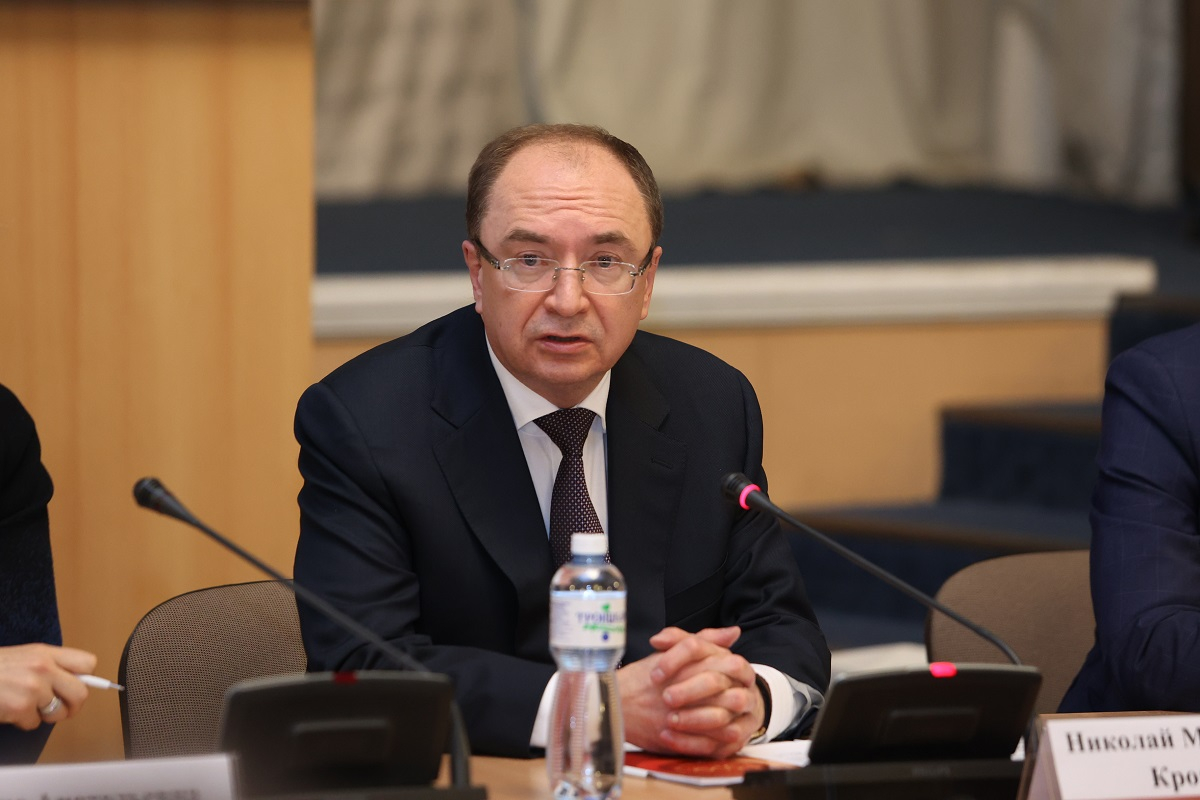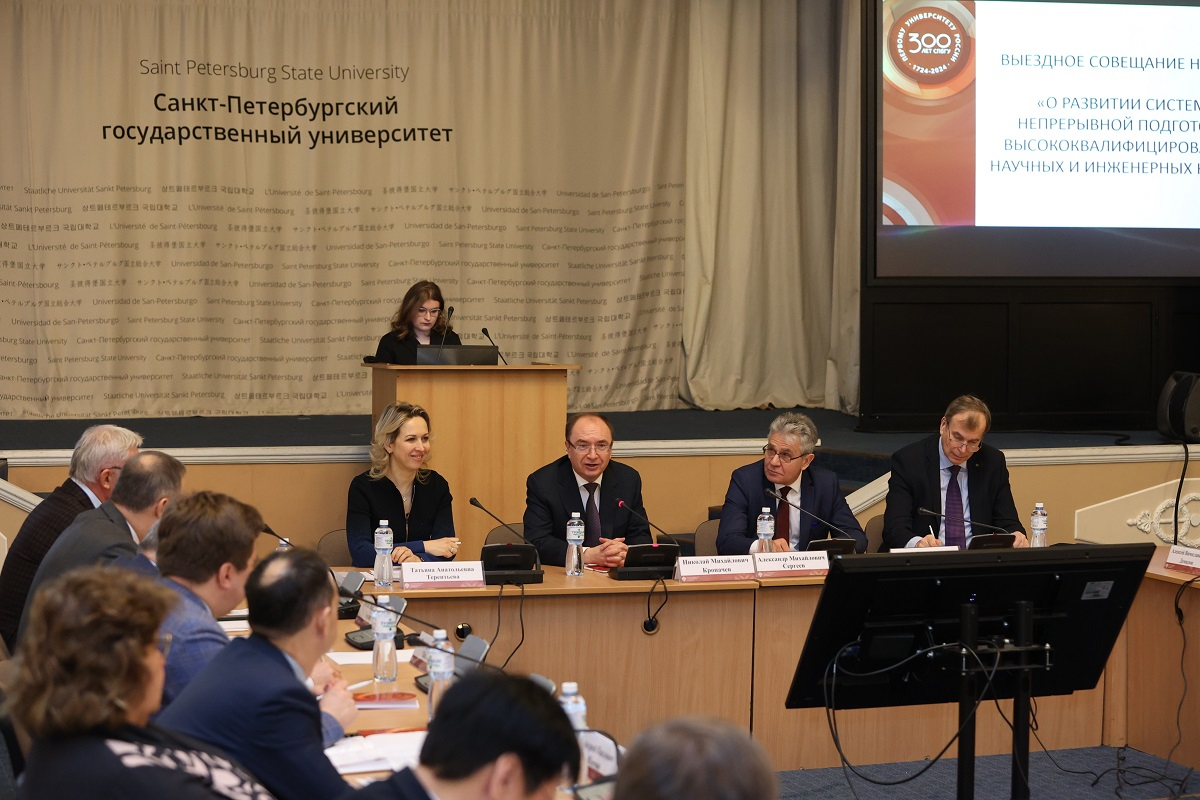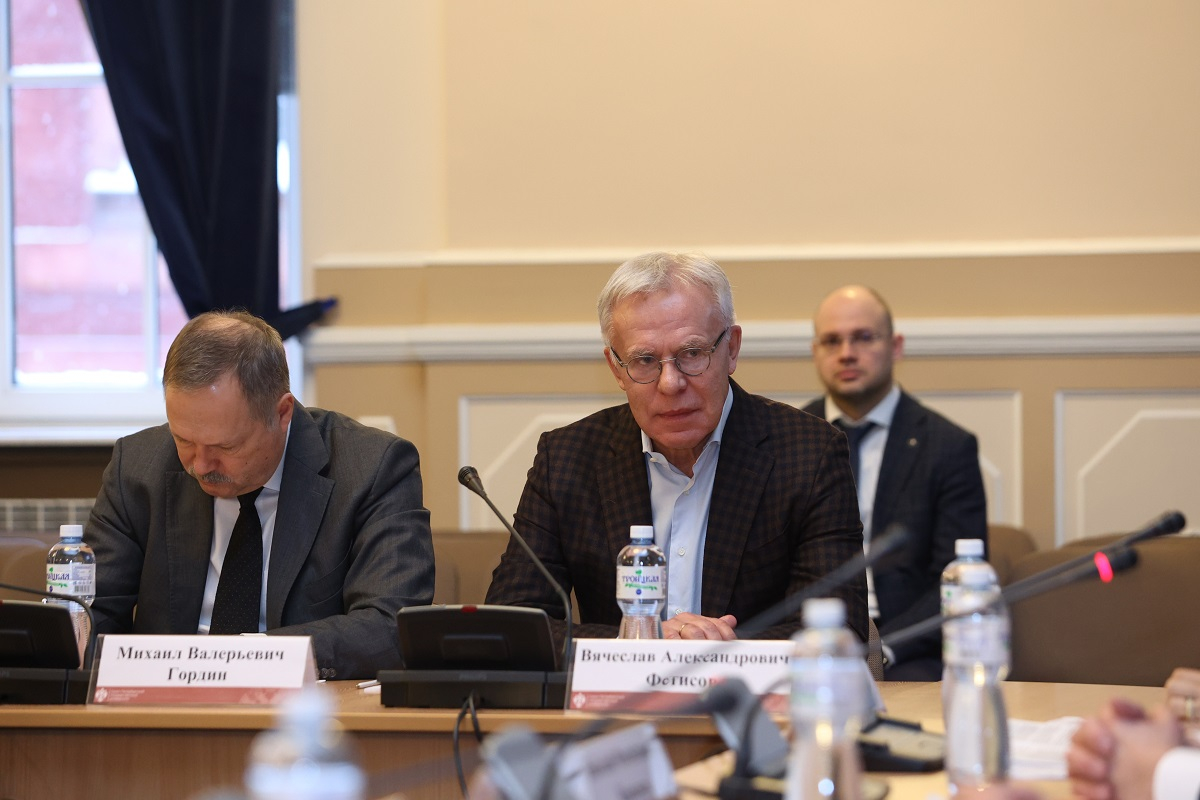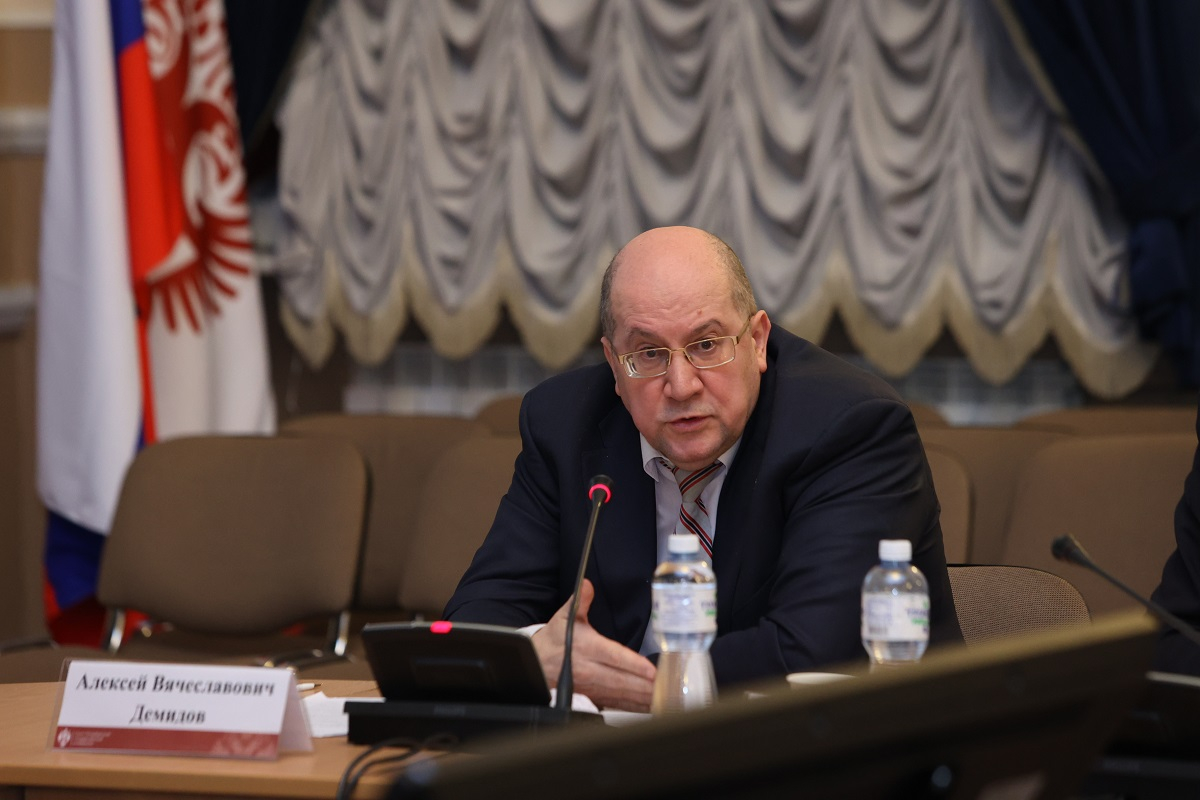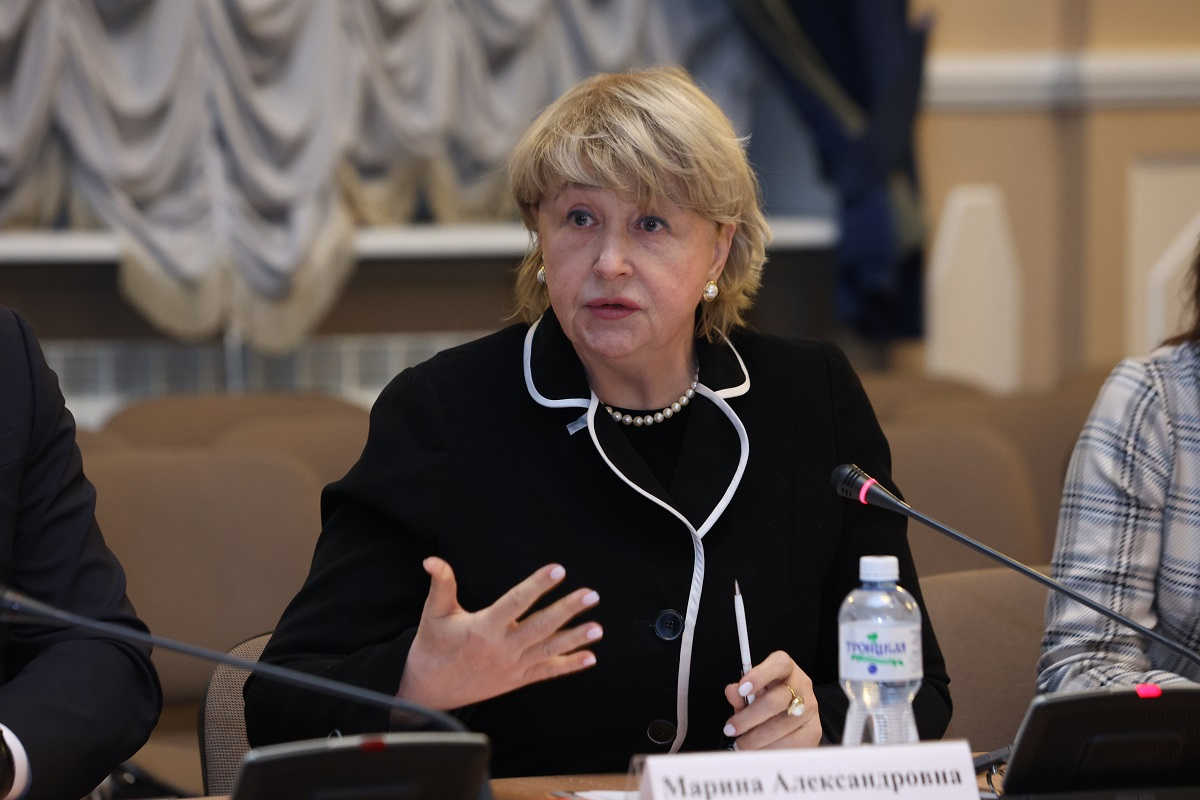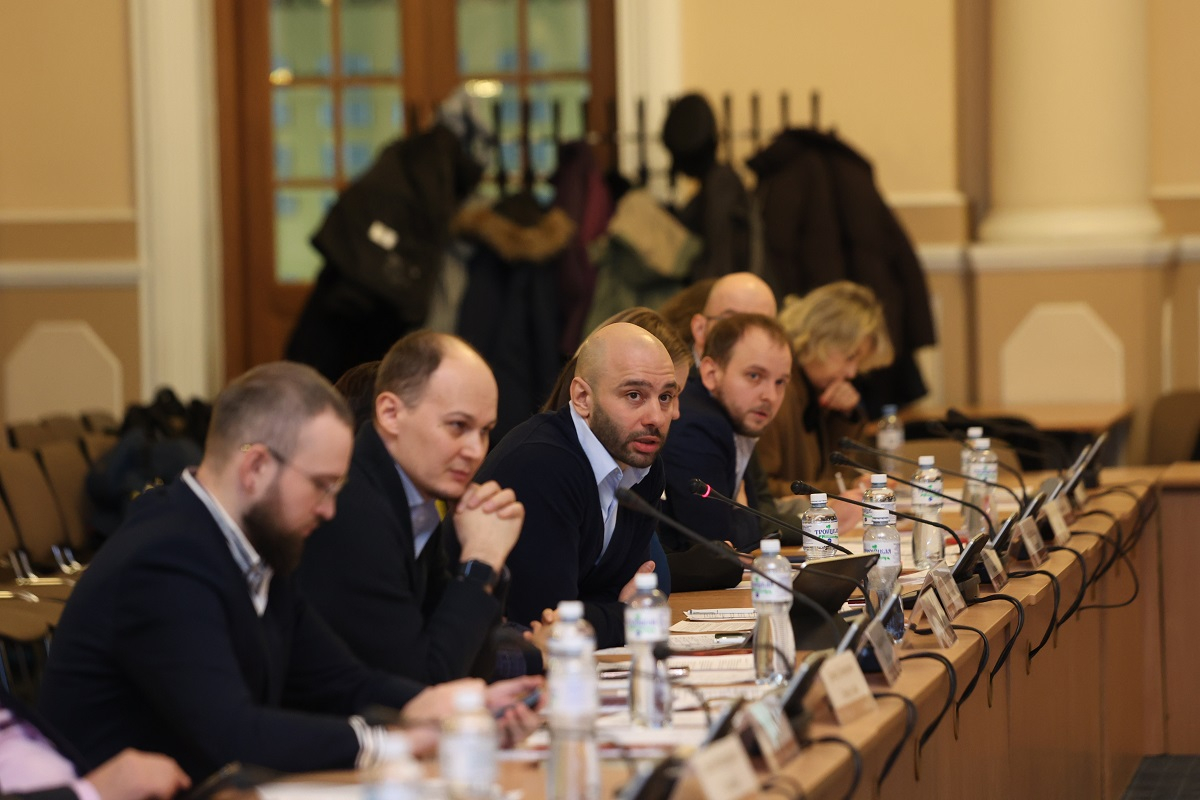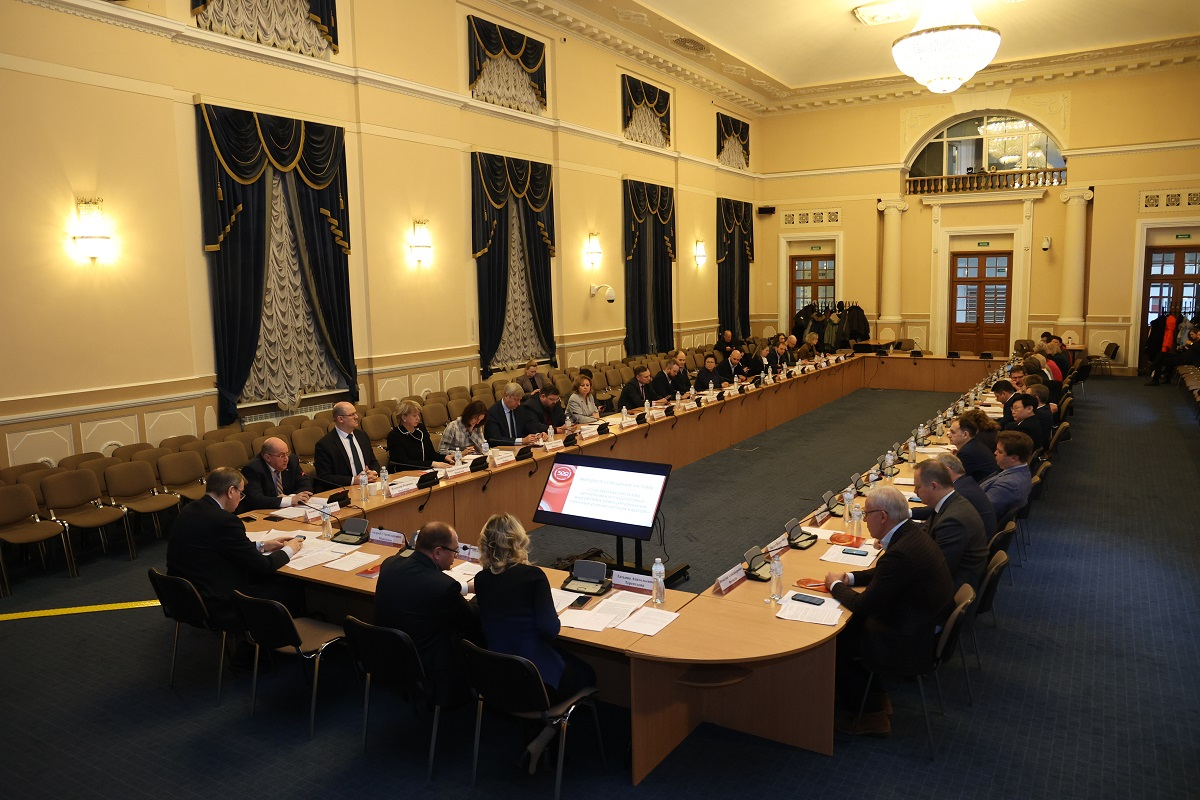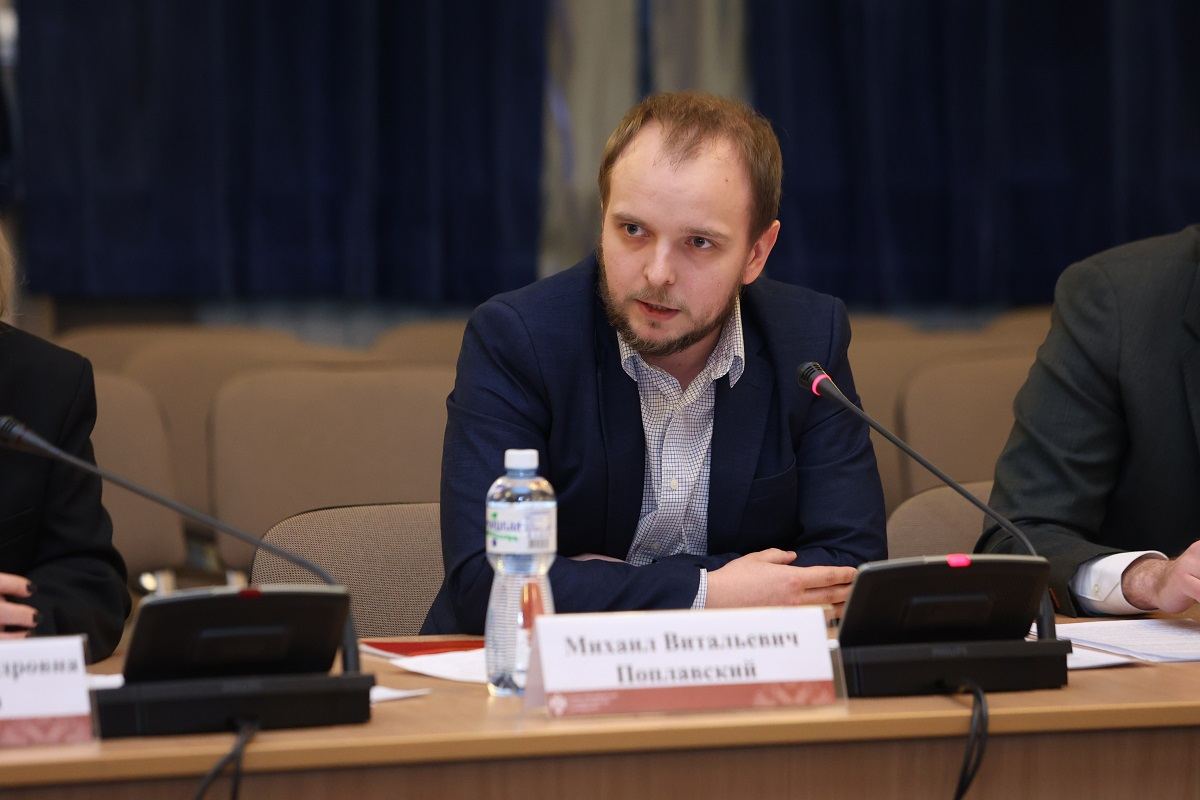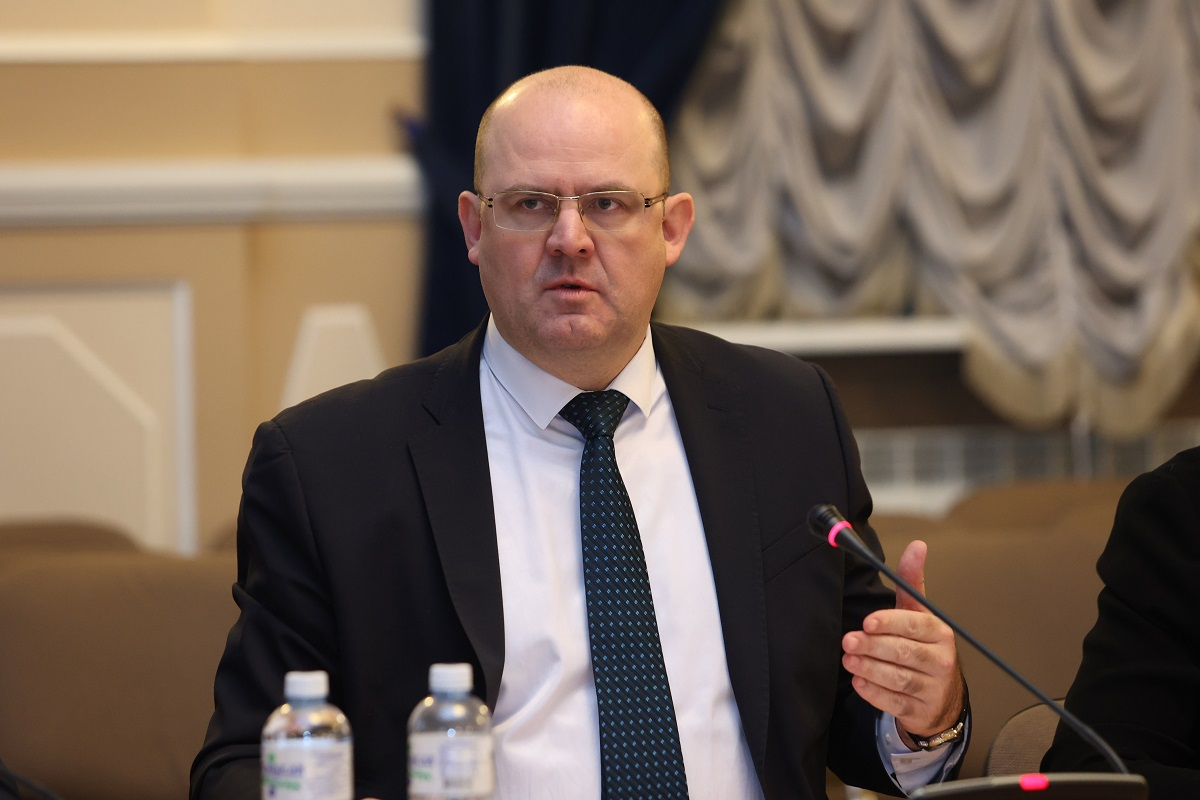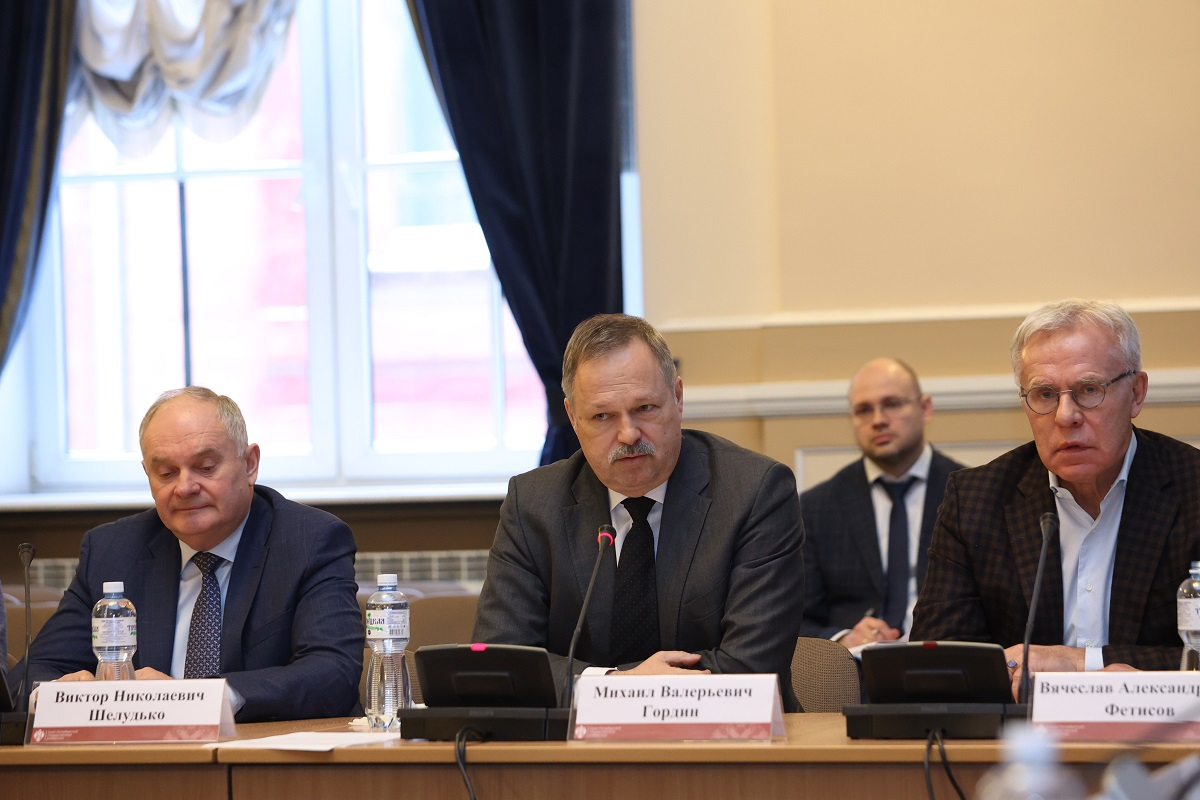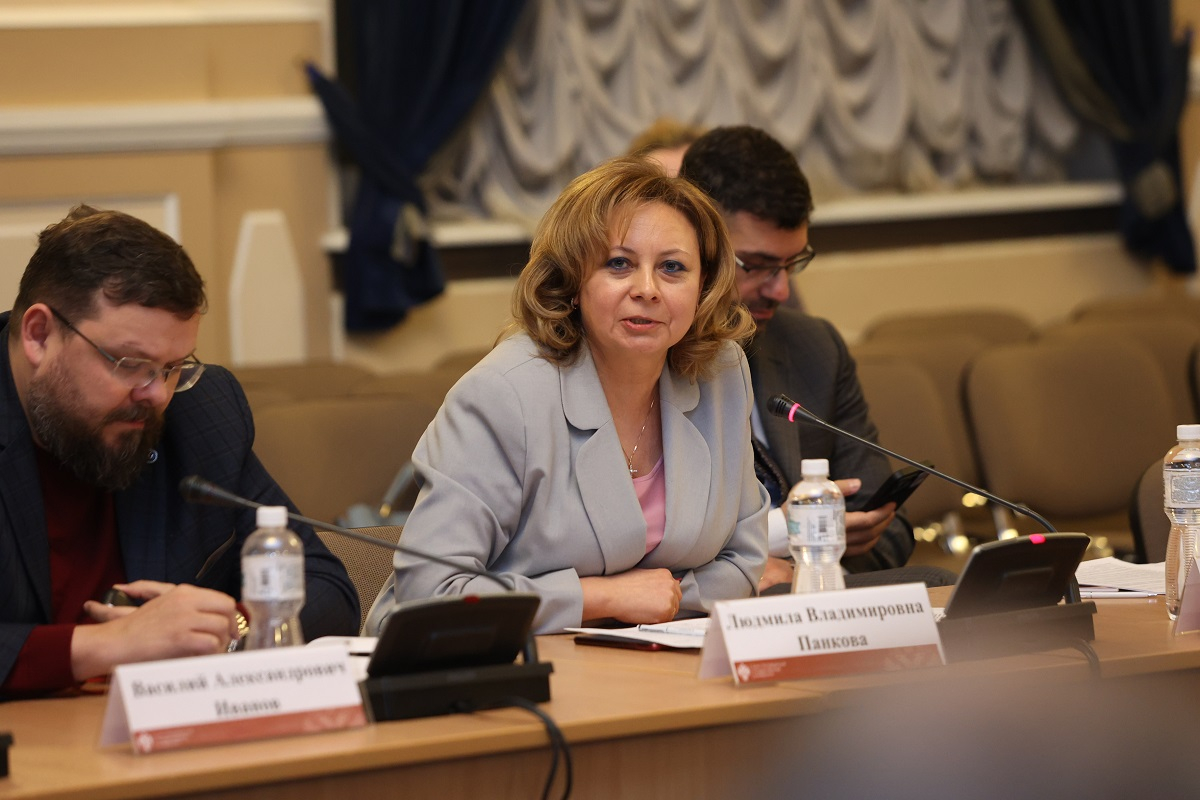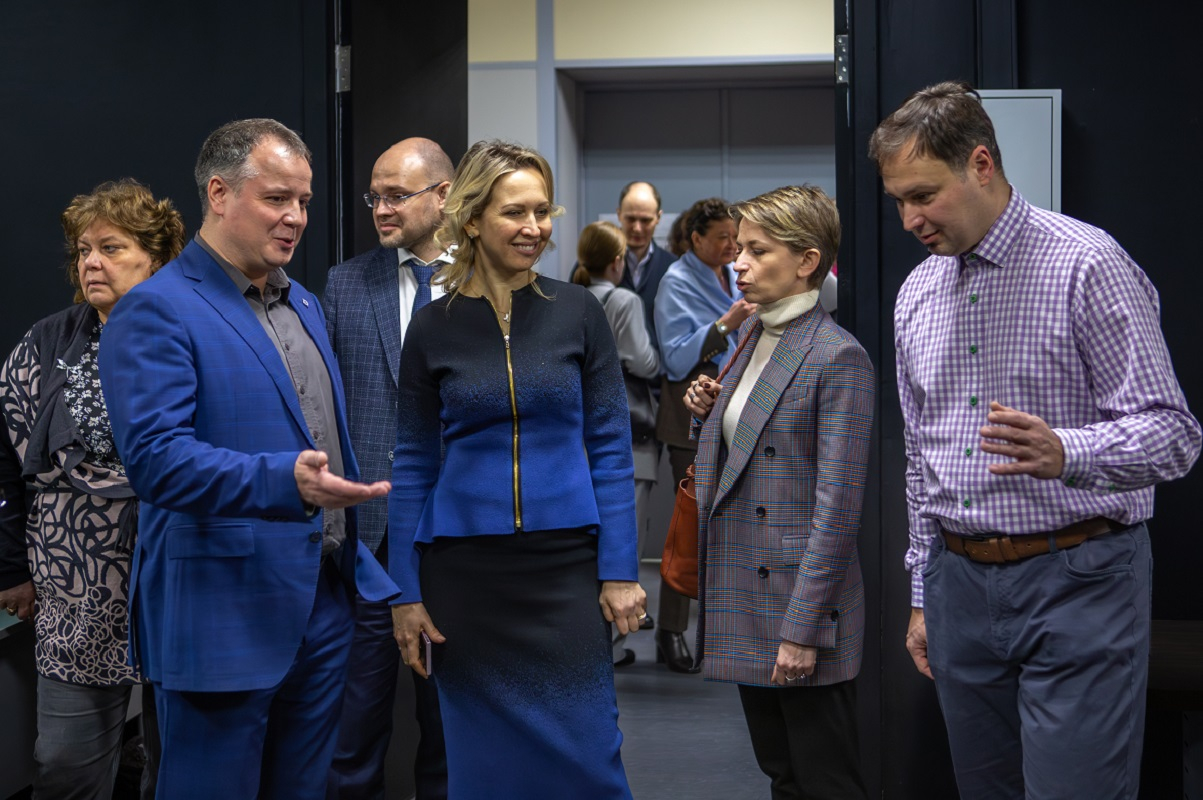The Rector of St Petersburg University proposes to give the special educational and scientific centres the right to work according to their own educational standards
St Petersburg University has held the meeting "On the development of a system of continuous training of high-calibre scientific and engineering personnel" for directors of the specialised academic centres and heads of the flagship universities of the State Atomic Energy Corporation Rosatom (ROSATOM). The meeting was organised by St Petersburg University and Rosatom.
The meeting discussed the following issues: the prospects for the development of a support system for gifted schoolchildren in Russia; cooperation between specialised academic centres with employers; and support for natural science industries by large Russian corporations.
According to Alexander Sergeev, Scientific Director of the National Centre for Physics and Mathematics, Member of the Russian Academy of Sciences, 2024 is set to mark the 300th anniversary of the Russian Academy of Sciences, St Petersburg University and the academic gymnasium. ‘A three-staged system of personnel training, i.e. the gymnasium, the University, and the Academy, was needed to raise the economic level of the country,’ he said. He noted that even today, the country is facing a task to modernise its economy, which means that the personnel training system must be at the cutting edge of the education development. ‘The future will be shaped by advances in technology,’ said Alexander Sergeev, Member of the Russian Academy of Sciences.
In Russia, specialised academic centres are set to educate gifted children. Today, there are ten specialised academic centres in large Russian cities and regional centres, including Moscow, St Petersburg, Yekaterinburg, and Novosibirsk. In total, over 2,000 talented schoolchildren study at these centres.
One of the ten Russian specialised academic centres is the D. K. Faddeev Academic Gymnasium at St Petersburg University. Today, there are 360 schoolchildren studying at the gymnasium, more than half of them came to St Petersburg from other regions across Russia.
Nikolay Kropachev, Rector of St Petersburg University, Corresponding Member of the Russian Academy of Sciences, made several proposals. First, to provide the specialised academic centres with an opportunity to work according to their own educational standards and develop their own academic programmes. Second, to develop and stipulate rules in the legislation in relation to ensuring mutually beneficial relations between a corporation that provides financial support for targeted education and a university (a specialised academic centre/a school), a corporation that provides financial support for targeted education and a student/parents and a university (a specialised academic centre). Third, to legislate the right of a university, at the initiative of a customer employer that provides financial support for education, to change the content of the academic programmes pursued by the current students. Fourth, to improve the quality of education of engineering personnel by improving the quality of teaching not only in fundamental disciplines, but also in such subjects as economics, management, psychology, and law. All meeting participants supported these proposals.
‘Recently, universities began to work according to their own educational standards and actively interact with employers, involving them in the process of developing academic programmes. The successful experience of St Petersburg University and other leading universities across Russia shows that this approach is set to prepare specialists who are ready to solve the current problems of employers and therefore are in demand on the labour market. Employers are interested in ensuring that academic programmes at universities and schools meet the current needs. I am confident that preparing high-calibre scientific and engineering personnel should begin with the specialised academic centres; relevant educational standards should be developed for these centres, at least in an experimental format. This right should necessarily be granted to those schools that operate at universities’, said Nikolay Kropachev.
The participants agreed that the specialised academic centres have talented children who are able to master the programme faster than it is stipulated in the current educational and methodological recommendations. These children should be given an opportunity to study according to non-standard curricula, develop their skills in project and research work, and cooperate with potential employers.
According to Viacheslav Fetisov, Member of the State Duma, Senior Deputy Chairperson of the Public Council of the State Atomic Energy Corporation Rosatom (ROSATOM), developing a personnel pool should be underpinned by our special attention to selecting and identifying capable young people. ‘Talented children are born every day. We must support these children at school. When they are already university students, it is too late,’ said Viacheslav Fetisov.
According to Aleksandr Mazhuga, Senior Deputy Chairperson of the State Duma Committee on Science and Higher Education, Professor at the Russian Academy of Sciences, financial support for such centres should not fall entirely on the shoulders of the regions. It is important to attract government funding and business funds, i.e. employers who will ultimately receive high-calibre personnel and young specialists who began their journey into science and practice while still studying at school.
There are such companies in Russia. According to Tatiana Terenteva, Deputy General Director for Personnel at the State Atomic Energy Corporation Rosatom (ROSATOM), today Rosatom is cooperating with the Russian leading technical universities. For example, a branch of Lomonosov Moscow State University was opened in Sarov as an educational core of the National Centre for Physics and Mathematics. A branch of the National Research Nuclear University MEPhI, i.e. a flagship university of Rosatom, was opened in Obninsk. A joint master’s programme with the National Research Nuclear University MEPhI is being implemented in Snezhinsk.
This approach is incredibly beneficial. The approach to preparing students in the context of real-life tasks, laboratories, and companies where they can proceed to employment increases their interest in profession and helps graduates make a choice in favour of working in their fields.
Now, Rosatom’s intentions are to develop a system for preparing high-calibre scientific and engineering personnel at the specialised academic centres and university schools, taking into account the personnel needs of leading industry and research centres.
Among the informative reports were the reports by Liliia Gumerova, Chairperson of the Federation Council Committee on Science, Education and Culture; Alexey Demidov, Rector of Saint Petersburg State University of Industrial Technologies and Design; Andrey Maksimov, Chairman of the St Petersburg Committee on Science and Higher Education; Marina Borovskaya, Corresponding Member of the Russian Academy of Education, President of Southern Federal University; Andrei Gladilin, a coordinator of the Commonwealth of University and Innovation Schools and a teacher at the University Gymnasium at Lomonosov Moscow State University; Timur Sinelnikov, Director of the Scientific Research Centre at the Southern Federal District; Mikhail Poplavskii, Deputy Director for Academic and Educational Activities at the University Gymnasium at Lomonosov Moscow State University; Vladimir Shevchenko, Chairperson of the Consortium of Flagship Universities of the State Atomic Energy Corporation Rosatom, Rector of National Research Nuclear University MEPhI; Mikhail Gordin, Rector of Bauman Moscow State Technical University; and Ludmila Pankova, Acting Vice-Rector for Academic Activities at Peter the Great St Petersburg Polytechnic University.
Following the meeting, the participants proposed to revise the rules for admission to the specialised academic centres and to develop transparent and specific rules governing the relationship "teacher-student-corporation-university". Among the most important tasks is to prepare high-calibre physics and mathematics teachers and to develop university programmes for graduates of the specialised academic centres. Ensuring effective system of supporting talented schoolchildren and students in all the BRICS member states is an important step in developing the system of specialised academic centres and natural science fields in education.
The meeting participants also visited the Research Park at St Petersburg University, where they were introduced to what conditions had been created at the University for teaching schoolchildren, what equipment is used to conduct complex experiments and scientific research. In the Research Park at St Petersburg University, an educational centre in the field of "Physics’ was opened to provide laboratory workshops as part of the academic programmes in the areas of ‘Physics", "Applied Physics and Mathematics", "Engineering-Oriented Physics", "Chemistry", and "Chemistry, Physics and Mechanics of Materials". The centre also includes a separate laboratory experimental site with the state-of-the-art laboratory equipment for working with schoolchildren.
While studying at the centre, schoolchildren can gain research skills and become familiar with the University approaches to teaching. This provides an opportunity to ensure a seamless transition from school to student laboratory.


